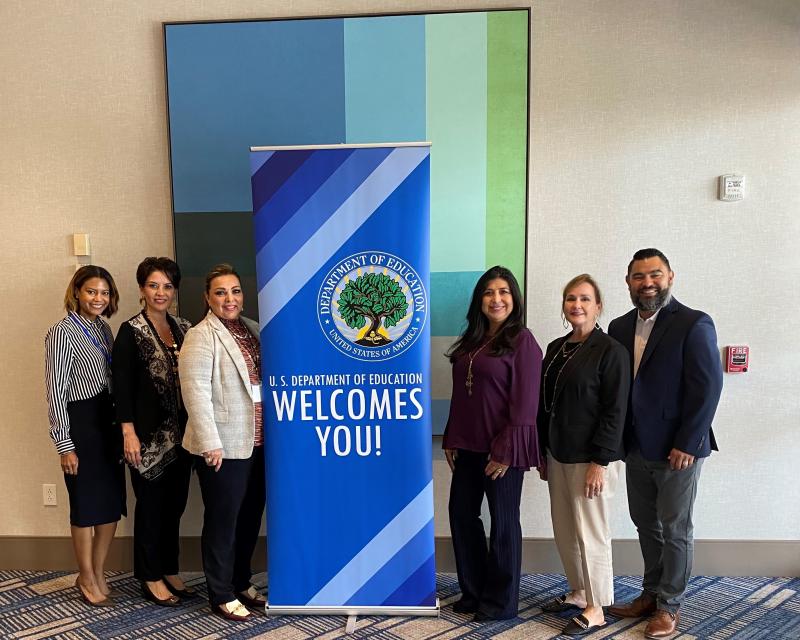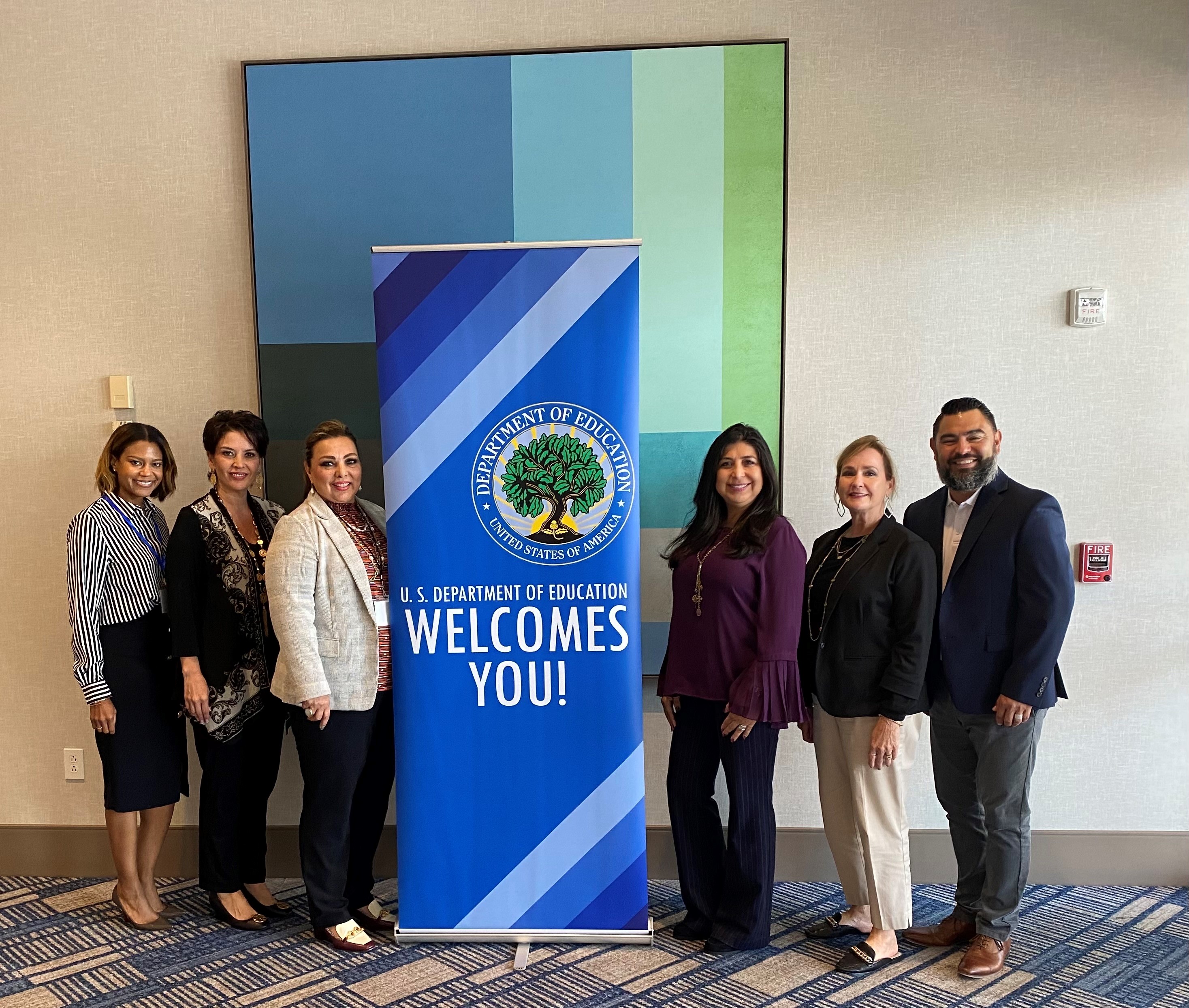The U.S. Department of Education’s Effective Educator Development (EED) Division recently hosted a special Powered by Teach to Lead event, called Reimagining Our Investments for Strengthening Educator Effectiveness. The event focused on strengthening educator effectiveness within PK-12 school districts and educational organizations. Held in Orlando, Florida, October 7th–9th, it included schools, districts, county school systems, universities, and state education agencies from 13 states.
A Critical Friend for a Texas Independent School District
Westat Senior Study Director, Sherelle Foust, MS, represented the Region 14 Comprehensive Center and served as a Critical Friend (thought partner) to Somerset Independent School District (ISD), a rural district in Texas.
To participate in the event, Somerset ISD submitted an application that included a title, topic, problem of practice, root cause, and draft strategies and outcomes. Over the course of 3 days, Ms. Foust used her subject matter expertise in teacher recruitment planning and strategy to facilitate sessions on logic model development and refinement with the Somerset ISD leadership team.
Somerset ISD left the event with an implementation-ready logic model focused on strategic teacher recruitment and retention, and a refined framework for their project, including strategies and specific activities, which was strengthened by the Critical Friend conversations facilitated by Ms. Foust.
(Left to Right) Sherelle Foust, Effective Instruction Lead, Region 14 Comprehensive Center; Kriesti Bunch, Chief Academic Officer, Somerset ISD; Sheila Collazo, Associate Superintendent, Somerset ISD; Rose Chapa, Senior Instructional Coordinator, Somerset ISD; Teresa Sellers, Master Teacher, Somerset ISD; Mario Goff, Senior Instructional Coordinator, Somerset ISD.
Building Trust to Uncover Root Cause
A Critical Friend conversation requires mutual trust between all parties to ensure discussions are honest, confidential, and productive. “The Somerset team and I were able to quickly connect around our passion for students, shared experiences in Texas, and high energy and belief in working hard to get to positive student outcomes,” Foust said. “The solid unity and strong work ethic of the Somerset team were evident and helped to create synergy.”
Ms. Foust led the team through specific steps to reflect on their proposed project, such as understanding team member roles, identifying possible gaps, and evaluating if the initial problem was truly the problem that needed to be solved. Moving deeper, the next conversations investigated root causes and alignment of outcomes and strategies. Sheila Collazo, MEd, Associate Superintendent at Somerset ISD, shared the benefits of the Critical Friend framework, noting, “Throughout the process, [Ms. Foust] stayed true to the role by actively listening, reserving judgment, challenging assumptions, asking thought-provoking questions, and consistently advocating for our successes, which, in turn, fueled momentum.”
As a result of the conversations, the team discovered the initial project title and topic were not representative of the problem and root causes, which allowed for in-depth discussion about how to revise the plan to better reflect the district’s needs.
“Our team was grateful for the time to reflect on our problem of practice in a space with other leaders across the nation who are facing similar challenges. Though the logic model provided the structure for high level conversations and in-depth analysis of our current practices, the questions posed by our Critical Friend, [Ms. Foust], allowed us to rethink and delineate the initial problem of practice and root causes. Once defined, the actionable next steps were clearly noted as the team’s blueprint for sustainable change.”
Sustainable Capacity-Building in Action
The event also provided opportunities for Somerset ISD’s team to workshop their plan through peer consultancy, gallery walks, and learning sessions. The Critical Friends provided instruction on protocols, encouraged dialogues to dig deeper into the problems of practice presented by each team, and offered professional input based on subject matter expertise.
Somerset ISD’s representatives left the event with a fully developed logic model and the ability to replicate the capacity-building process through strategic peer consultancy steps. The goal of the conference was not to provide answers for the problem of practice, but for the team to work through the process of answering strategic questions together and discovering their own answers.
The capacity-building process was key to Somerset ISD’s experience at the event and what they will take back to their district. As Ms. Collazo noted, “[Ms. Foust’s] feedback was tied to elevating the work, looking at information from varied perspectives, and moving toward organizational outcomes that would ultimately benefit students.” As a result of the event and the collaborative support from Ms. Foust, Somerset ISD is better prepared to implement their plan and to make a positive impact for educators and students in their schools and community.

